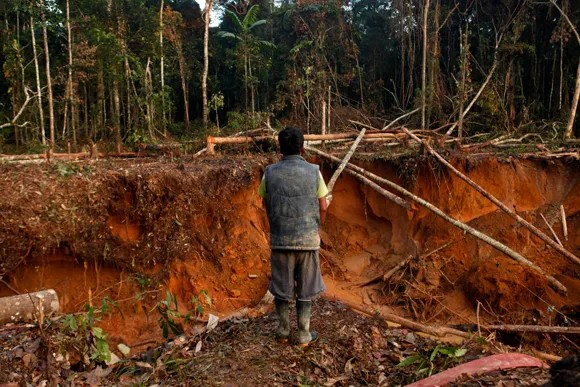A new report from the United Nations Office on Drugs and Crime, Minerals Crime: Illegal Gold Mining, has sounded the alarm on the escalating risks posed by illegal gold mining and related minerals crime worldwide.
Released as part two of the Global Analysis on Crimes that Affect the Environment, the report details how surging global demand for gold and other critical minerals is fueling a surge in crime, corruption, and instability across the mineral supply chain.
The report finds that organised crime groups, corporations, and individuals are increasingly embedding themselves in gold supply chains, attracted by the sector’s soaring profitability and gold’s rising value.
In Latin America, drug trafficking organisations have expanded into illegal gold mining, leveraging established smuggling routes to move illicit gold. Proceeds from these operations are often reinvested into other criminal activities.
In Africa, some organised groups operate exclusively in gold, while others use gold profits to fund armed activity, challenge state authority, or fuel conflict.
Corruption permeates every layer of the supply chain. Criminal actors, including traders and corporations, exploit legal loopholes and weak regulatory oversight to disguise the origin of illegally sourced gold.
Tactics include forging permits, bribing officials for mining concessions, and falsifying documentation to launder gold into licit markets. Fraud and bribery extend to public officials at all levels, undermining governance and the rule of law.
The report highlights severe consequences for local populations. Communities near illegal mining sites often face sexual exploitation, forced labour, and displacement.
In Africa, artisanal and small-scale mining employs nearly 10 million people, but many are forced to sell gold below market value to criminal networks or see their product smuggled and sold at inflated prices, distorting local economies and fueling further crime.
Environmental impacts are dire. Illegal mining accelerates deforestation, pollutes water sources with hazardous chemicals like mercury, and causes biodiversity loss, posing serious public health risks.
The UNODC report calls for stronger international cooperation, harmonised legislation, and improved data collection to combat minerals crime.
It urges enhanced due diligence and traceability in mineral supply chains, alongside targeted law enforcement responses to secure critical mineral flows essential for the global energy transition.
Angela Me, Chief of Research and Analysis at UNODC, restated the need for “better data to quickly spot and respond to the criminal exploitation of the mining sector”, and called for globally harmonised standards and enforcement.





7rijip